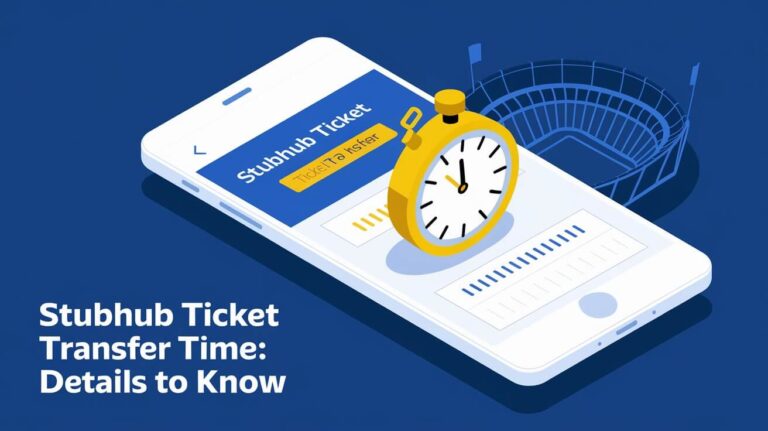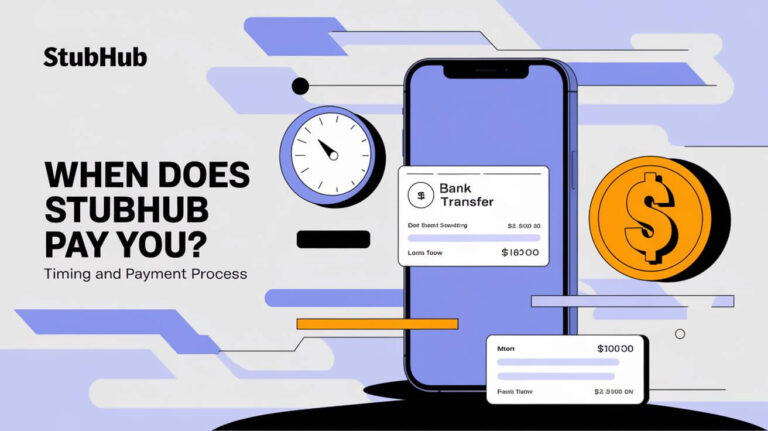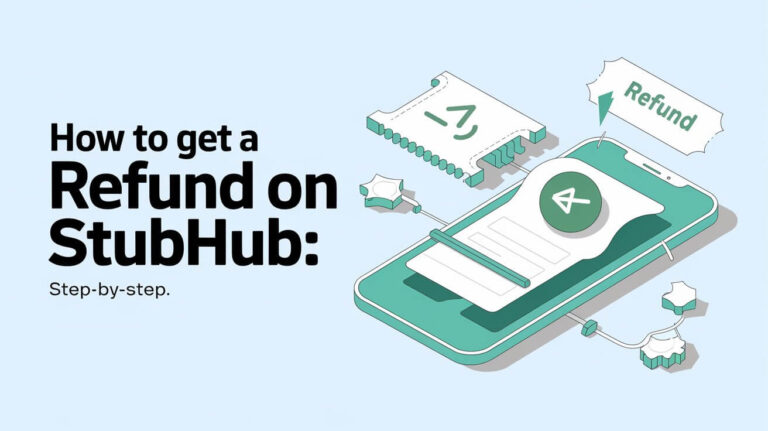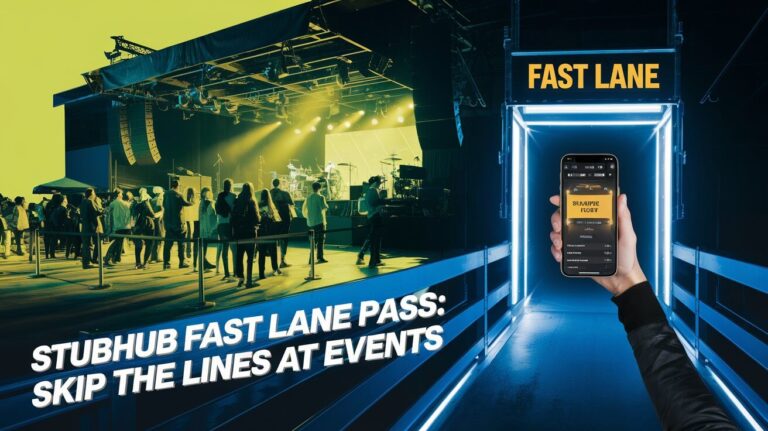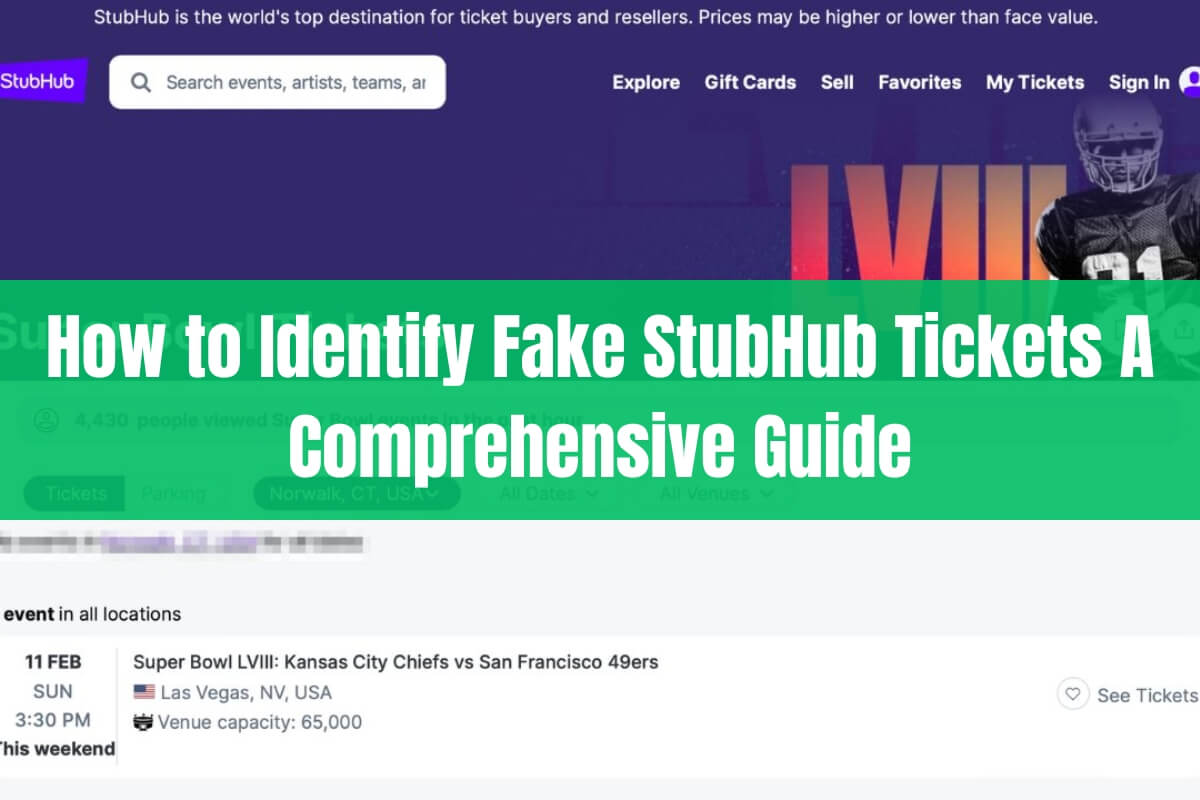
Attending your favorite concert, sports game, or live event is an exhilarating experience. However, the excitement can quickly turn into disappointment if you fall victim to fake StubHub tickets. With the high demand for popular events, ticket scams have become increasingly prevalent, leaving unsuspecting buyers at risk of losing their hard-earned money and missing out on the event they were so eagerly anticipating.
But how can you spot fake StubHub tickets and protect yourself from these scams?
The short answer is to be vigilant, do your research, and look out for common red flags. By following a few crucial steps and guidelines, you can significantly reduce the chances of being duped by fraudulent ticket sellers.
This guide explains StubHub ticket scams. Learn about different scam types, how to spot fake tickets, and stay safe when buying. We’ll discuss StubHub’s Fan Protect Guarantee, alternative platforms, and reporting shady sellers. Get ready to outsmart ticket fraudsters.
Common Signs of Fake StubHub Tickets
One of the most obvious indicators of a fake StubHub ticket is an abnormally low price or a deal that seems too good to be true. Scammers often lure unsuspecting buyers with unbelievably cheap prices, preying on their excitement and urgency to secure tickets for a popular event. While legitimate sellers may offer discounted rates, be wary of prices that are significantly lower than the market value.
Another red flag to watch out for is tickets listed with a price of $0.00. These are often free tickets that the seller can relist, potentially duping multiple buyers into purchasing the same non-existent tickets.
Duplicate ticket listings from the same seller are also a common tactic used by scammers. In this scenario, the seller lists the same tickets multiple times and sells them to different buyers, leaving only the first person to arrive at the venue with a valid ticket.
Furthermore, tickets with a visible “VOID” watermark should raise suspicion. While this watermark is designed to prevent others from copying the tickets, it may also indicate that the seller is attempting to pass off invalid or canceled tickets.
Finally, pay close attention to the venue, section, and seat details listed on the tickets. Cross-check this information with the official venue website or seating chart to ensure the tickets correspond to legitimate seat assignments.
Verifying the Seller and Website
Before purchasing on StubHub, it’s crucial to verify the authenticity of both the seller and the website you’re on. Start by carefully examining the website’s URL – the real StubHub website should always begin with “www.stubhub.com.” Any deviation from this URL could indicate a fraudulent website designed to mimic the real platform.
Next, scrutinize the seller’s ratings and reviews. Look for established sellers with a high rating and positive feedback from previous buyers. Newly created or suspicious seller accounts with minimal or negative reviews should raise red flags.
Types of StubHub Ticket Scams to Avoid
In addition to the common signs mentioned above, there are various types of StubHub ticket scams to be aware of:
- Fraudulent Websites: Scammers often create websites that mimic StubHub’s design and appearance, tricking buyers into thinking they’re on the legitimate platform. These fraudulent websites aim to steal personal and financial information or sell counterfeit tickets.
- Counterfeit Tickets: Some scammers go to great lengths to create realistic-looking counterfeit tickets, complete with replicated barcodes and designs. These tickets may pass initial scrutiny but will ultimately be rejected at the venue’s entrance.
- Duplicate Listings: As mentioned earlier, scammers may list the same tickets multiple times and sell them to different buyers, leaving all but the first person to arrive at the venue without a valid ticket.
- Hidden Fees and Last-Minute Changes: Beware of sellers who tack on hidden fees or attempt to change ticket details at the last minute. These tactics can leave you with unexpected costs or invalid tickets.
- Phishing Attempts: Scammers may use phishing tactics, posing as StubHub support and requesting personal or financial information under the guise of resolving a purported issue with your purchase. Always verify the legitimacy of such requests through official StubHub channels.
Steps to Confirm Ticket Legitimacy
To ensure you’re not falling victim to a scam, take the following steps to confirm the legitimacy of your StubHub tickets:
- Cross-check Event Details: Compare the event details listed on your tickets, such as the date, venue, and performer, with the official event website or venue website. Any discrepancies should raise red flags.
- Contact StubHub Customer Support: If you have any doubts about the authenticity of your tickets, don’t hesitate to reach out to StubHub’s customer support team. They can assist in verifying the legitimacy of your purchase and guide you if issues arise.
- Utilize StubHub’s “ViewTRUST” Technology: StubHub’s “ViewTRUST” technology allows you to validate the barcodes on your tickets, ensuring they are genuine and have not been duplicated or tampered with.
StubHub’s Fan Protect Guarantee: What You Need to Know
StubHub offers a Fan Protect Guarantee, which promises a full refund plus a cash stipend of 200% of the ticket purchase price if you receive invalid tickets from a seller on their platform. While this policy aims to protect buyers, navigating the claim process can be challenging, as evidenced by some buyer experiences.
If you find yourself in a situation where you’ve received fake tickets, it’s essential to initiate a claim with StubHub immediately. Provide all necessary information and documentation to support your case, and follow up persistently if you encounter any roadblocks or delays in the refund process.
Expert Tips from Seasoned Event-Goers
To gain additional insights, we reached out to frequent StubHub users and seasoned event-goers for their expert tips on spotting fake tickets:
Jane Smith, a concert enthusiast from New York, advises, “Always compare prices across multiple reputable platforms. If a deal seems too good to be true, it probably is. Trust your instincts and be willing to walk away from suspicious listings.”
Mark Johnson, a sports fan from Los Angeles, recommends, “Check the seller’s rating and read through their reviews carefully. Look for any red flags or patterns of complaints about invalid tickets or poor communication.”
These seasoned event-goers emphasize the importance of being vigilant, doing your research, and trusting your gut instinct when it comes to purchasing tickets on StubHub or any other resale platform.
Alternatives to StubHub for Buying Tickets
While StubHub is a popular choice for buying and selling tickets, it’s not the only option available. Explore official ticket marketplaces and fan-to-fan exchanges as alternatives. These platforms often have stricter verification processes and buyer protection policies in place, reducing the risk of encountering fake tickets.
When considering alternatives, compare factors such as fees, buyer protection policies, and overall trustworthiness based on user reviews and experiences. Weigh the pros and cons of each platform to determine the best option for your ticketing needs.
Reporting Fake StubHub Ticket Sellers
If you encounter a suspicious listing or seller on StubHub, it’s essential to report them to the platform’s support team. Provide detailed information about the listing, seller, and any evidence of fraudulent activity. By reporting these instances, you not only protect yourself but also help prevent others from falling victim to the same scam.
In severe cases of fraud, you may also consider involving law enforcement agencies, especially if the scam involves significant financial losses or identity theft.
FAQs on Fake StubHub Tickets
What to do if you receive fake tickets on the day of the event?
If you arrive at the venue and discover that your StubHub tickets are invalid, your first step should be to contact StubHub’s customer support immediately. Explain the situation and provide any necessary documentation or evidence. StubHub may be able to provide replacement tickets or issue a refund, depending on the circumstances.
Can StubHub ban users for selling fake tickets repeatedly?
Yes, StubHub has the authority to ban sellers who repeatedly engage in fraudulent activities, such as selling fake or invalid tickets. Repeat offenders risk having their accounts suspended or permanently banned from the platform.
Are there any legal consequences for selling counterfeit tickets?
Selling counterfeit tickets is considered a form of fraud and can carry legal consequences. Depending on the severity of the case and the jurisdiction, individuals involved in selling fake tickets may face civil or criminal charges, including fines or potential imprisonment.
Spotting fake StubHub tickets requires vigilance and research. Follow these tips to avoid scams: verify sellers, scrutinize listings, use StubHub’s protection policies, and consider alternative platforms. With precautions, you can buy tickets confidently and enjoy your events.
Conclusion
Attending live events is an exhilarating experience, but the excitement can quickly turn sour if you fall victim to fake StubHub tickets. By arming yourself with the knowledge and tips provided in this comprehensive guide, you can navigate the world of ticket resale platforms with confidence.
Be cautious of red flags like very low prices, repeated listings, and suspicious sellers. Verify event details, use StubHub’s tools, and contact support if unsure.
StubHub’s Fan Protect Guarantee protects buyers, but understand the claim process and be persistent if issues arise. Also, consider alternative ticket platforms that prioritize buyer protection.
Most importantly, trust your instincts. If a deal seems too good to be true, it’s better to walk away than risk falling victim to a scam. By staying vigilant and following the guidelines outlined in this guide, you can confidently purchase tickets and create unforgettable memories at your favorite events.

